The Chairman of the Senate Committee on the Review of the 1999 Constitution, Senator Opeyemi Bamidele, has assured Nigerians that the ongoing constitutional amendment process is substantive and purposeful—not a ceremonial exercise. He gave the assurance while speaking to the press after a two-day public hearing for the South-West zone held in Lagos.
Bamidele rejected claims that previous reviews had failed, explaining that amendments are a continuous legislative responsibility undertaken every four years.
“Every session of the National Assembly undertakes this duty. That’s why we refer to the 1999 Constitution as amended. Significant changes like power devolution and electoral reforms have already emerged from past amendments,” he said.
The lawmaker stressed that the rigorous amendment process—requiring concurrence by at least two-thirds of State Assemblies—exists to protect the sanctity of the Constitution and ensure broad consensus.
Among the dominant demands raised at the Lagos hearing were calls for restructuring, additional states and local governments, gender equity, and constitutional roles for traditional rulers.
“Nigerians have spoken loudly and clearly. We are committed to taking their views back to Abuja, codifying the proposals, and ensuring they go through the necessary legislative and ratification process,” Bamidele said.
Chairperson of the Lagos chapter of the Nigeria Labour Congress (NLC), Mrs. Funmi Sessi, strongly opposed proposals to move labour matters from the Exclusive Legislative List to the Concurrent List.
“This is nothing short of an existential threat to Nigerian workers. If allowed, some governors will institutionalize slave wages and abuse workers’ rights,” she warned.
Sessi recalled Nigeria’s ratification of ILO Convention No. 026, which mandates a national wage standard, and warned that devolution of labour matters would undermine the national minimum wage and encourage further violations of labour rights.
The NLC also advocated for electoral reforms, justiciable socio-economic rights, and full autonomy for the judiciary and legislature. Sessi emphasized that Chapter Two of the Constitution must be made enforceable, while social welfare protections such as free healthcare and transport for the elderly should be constitutionally guaranteed.
She maintained that Nigerian workers remain opposed to any move to tamper with the national minimum wage and labour-related items under the exclusive legislative list, describing such attempts as internal colonialism and a betrayal of justice.
Also addressing the hearing, Mr. Ganiu Lawal, representing the youth-led electoral reform movements, presented a five-point priority list focused on restoring public trust in the electoral system. He called for reform of the INEC leadership appointment process to eliminate presidential discretion, establishment of an independent Electoral Offences Commission, timely resolution of pre-election petitions before inauguration, electronic transmission of results, and truly continuous voter registration not tied only to election seasons.
Lawal described these reforms as critical to restoring fairness, participation, and integrity in Nigeria’s elections, urging the National Assembly to act decisively to enshrine the proposals in the Constitution.
Mr. Adeniyi Olutimehin, speaking on behalf of the Yoruba Youth Assembly and Greater Lagos Initiative, presented a proposal advocating true federalism, regional autonomy, and cultural integration. He called for fiscal federalism that would empower regions to control natural resources and generate internal revenue, along with devolution of key powers such as policing, agriculture, and transportation.
He demanded the establishment of a South-West Regional Development Commission to coordinate infrastructure such as railways and power grids across state lines. He also called for the creation of new states—Ojelu (from Ogun), Lago (from Lagos), and Okiuwu (from parts of Osun and Oyo)—to address representational imbalance and bring governance closer to the people.
Olutimehin further advocated for constitutional recognition of Local Council Development Areas (LCDAs) in Lagos, as well as the creation of two additional federal constituencies in both Oshodi-Isolo and Ikorodu to reflect population realities. He also demanded the formal establishment of state and community policing structures and legal empowerment of grassroots security formations.
He proposed the creation of a National Royal Council, composed of first-class traditional rulers, to advise on culture, conflict resolution, traditional justice systems, and communal development. According to him, the roles and welfare of traditional leaders should be clearly defined and protected in the Constitution to enhance their effectiveness as custodians of local governance and heritage.
Mr. Babajide Ajibade (SAN), Chairman of the Lagos branch of the Nigerian Bar Association (NBA), warned that Nigeria’s justice system would continue to suffer unless urgent reforms are made to the judicial appointment process. He criticised the current system as one that prioritizes tenure over merit and competence, and called for the National Judicial Council (NJC) guidelines to be enshrined in the Constitution.
Ajibade also highlighted issues surrounding funding and administration of the judiciary. He stated that while funding remains inadequate, a greater concern is the lack of accountability on how funds are administered by heads of courts.
He advocated for a system that ensures transparency and oversight in judiciary spending, alongside reforms to reduce congestion in the Supreme Court. He recommended that the apex court focus only on major constitutional and national matters, while minor appeals are filtered out to ease backlog and improve access to justice.
Ajibade concluded that “the real problem in Nigeria is not access to justice but exit from justice,” citing delays, congestion, and poor system design as barriers to fairness and efficiency.
Senator Bamidele concluded that all views expressed—ranging from labour rights and electoral integrity to judicial independence and cultural inclusion—will be compiled into the committee’s final report for legislative action.
“We are not just sitting in Abuja making arbitrary changes. This is a people-driven process, and something meaningful will definitely come out of it,” he assured.
As stakeholders from across civil society, government, youth movements, legal associations, and cultural institutions press for constitutional reforms, the responsibility now lies with the 10th National Assembly to honour their mandate and shape a more inclusive and accountable Nigerian state.


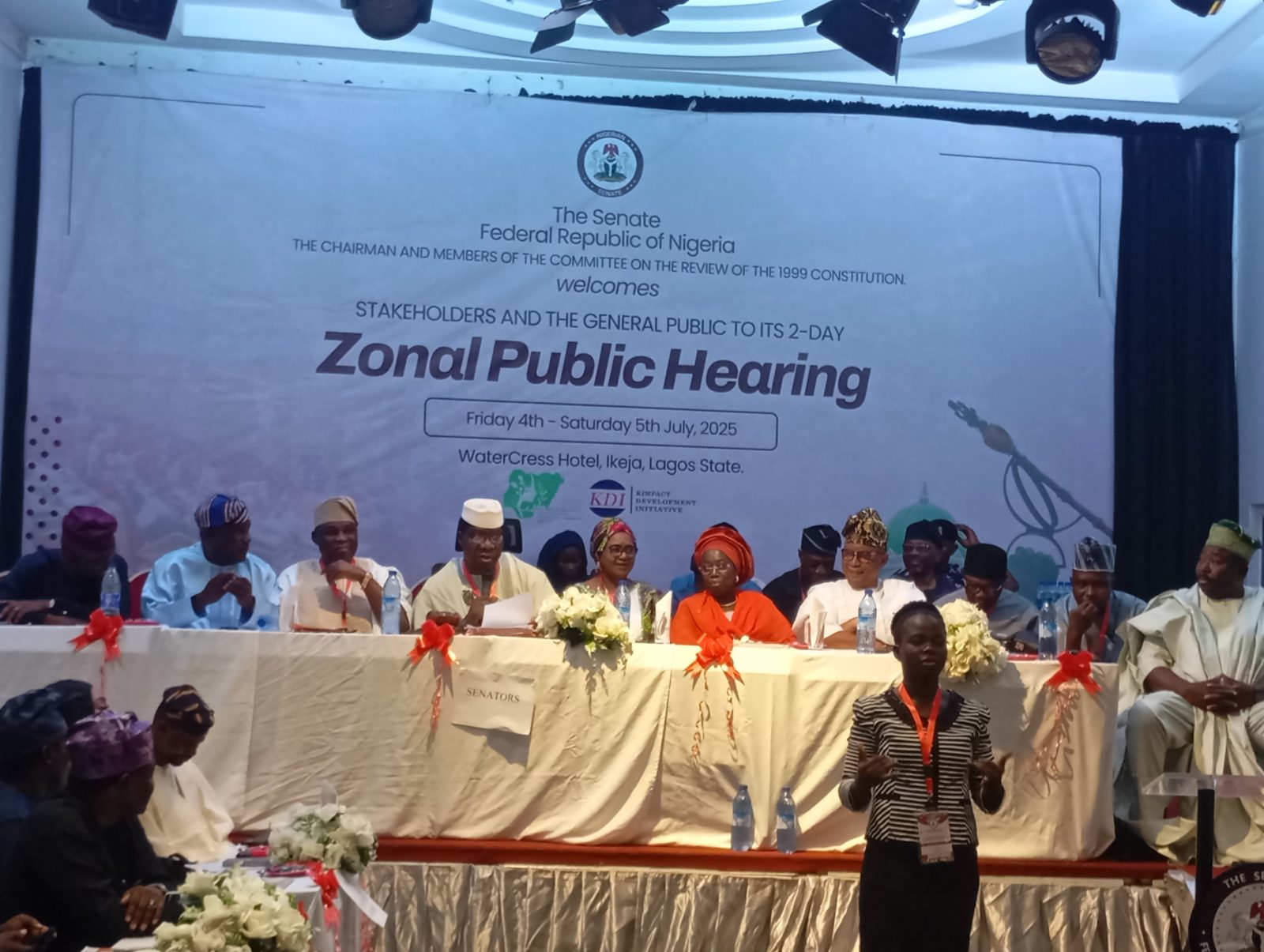
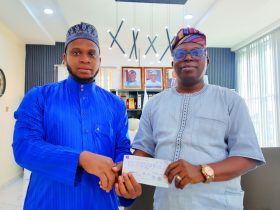
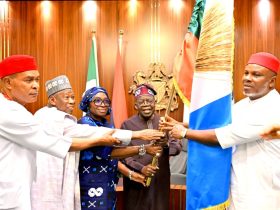
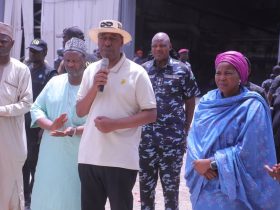
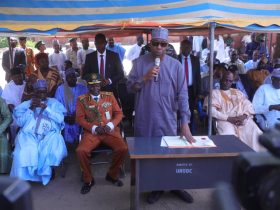



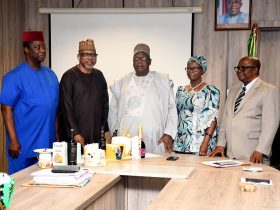
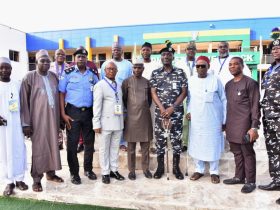
Leave a Reply